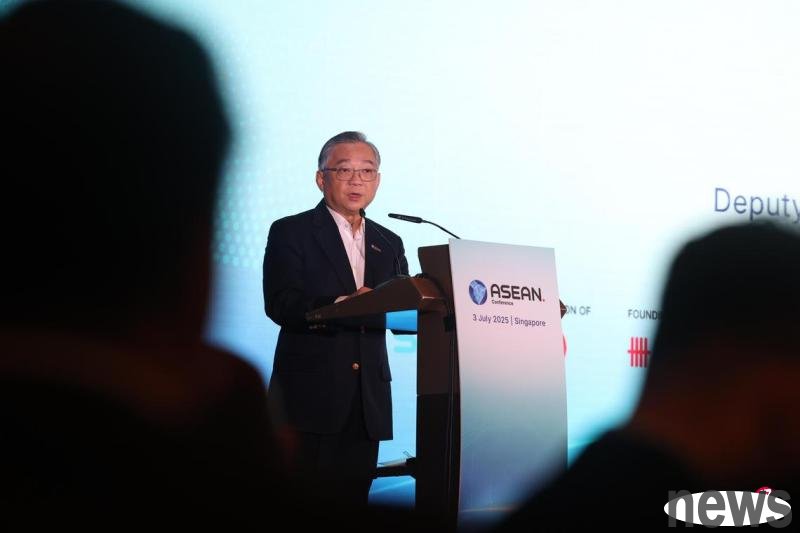
As the fiscal deficit continues to increase, tariffs will also be an increasingly important tax source for the US government. Therefore, U.S. tariffs will continue to exist and the cost of corporate exports to the U.S. will increase over a period of time.
Yan Jinyong made the above views when he attended the 9th ASEAN Conference on Thursday (July 3).
Yan Jinyong, who is also in charge of leading the Singapore Economic Resilience Group, revealed to the media in May that when explaining the latest progress of the group's work to the media, my country and the United States are negotiating that if tariffs are implemented, the United States may consider allowing my country to export drugs to the United States with preferential treatment or even zero tariffs.
Yan Jinyong mentioned at the time that the United States was concerned about how to ensure the stability of the supply chain.
Yan Jinyong said: "Using tariffs to achieve fair and balanced trade with the world, and using a 'transshore' or 'near-shore' strategy to attract key industries to return. The two parties in the United States have gradually reached a consensus on this."
"Nevertheless, the United States believes that the WTO has failed to effectively address issues such as non-market behavior and overcapacity. It also has not stated how the WTO should be reformed, but it is likely to be seeking reforms consistent with the ‘U.S. First’ trade policy.”
If we refer to the framework agreement reached by the United States and the United Kingdom earlier, Yan Jinyong believes that the United States may also implement preferential industrial tariffs to other countries under security-related conditions.
Although the United States imposes tariffs on the world, it does not mean that the United States has abandoned its multilateral trading system. Although the United States has not stated how it should reform the World Trade Organization, my country's Deputy Prime Minister and Minister of Trade and Industry Yan Jinyong believes that it will follow the "America First" trade policy and seek change. Yan Jinyong reminded that companies must be mentally prepared that exporting products to the United States will have to bear higher costs for a period of time, and do not expect that the United States will change its government in four years and tariffs will disappear.
Drugs and semiconductors are currently not within the scope of tariffs imposed by the United States, but the Trump administration in the United States does not rule out doing so. The United States regards steel, drugs and semiconductors as key industries that are relevant to national and economic security. At present, the United States has imposed a 50% tariff on steel and aluminum imports.
He also mentioned that, like tariffs, U.S. concerns about economic security will not disappear in the near term, especially in areas it considers crucial.
Companies may consider establishing independent production lines and supply chains for export to the United StatesIn addition, companies must also be prepared, and the United States will review their production and supply chains more strictly. Yan Jinyong pointed out that companies may need to consider establishing independent production lines and supply chains specifically for export to the United States.
Although many companies are currently resisting new tariffs, Yan Jinyong believes that once they invest in the United States, the motivation for companies will be to ensure that these measures can be maintained to protect their investments.
However, in Yan Jinyong's view, the United States' series of actions does not mean that it has abandoned the multilateral trading system. He pointed out that the United States has not withdrawn from the WTO so far. U.S. Trade Representative Jamieson Greer attended the WTO informal meeting of ministers last month, and also nominated former U.S. Trade Representative Office official Joseph Barloon as U.S. representative at the WTO.